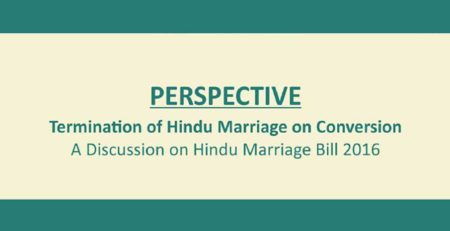The Law of Tawhin-i-Risalat: A Social, Political and Historical Perspective
Some important cases
As pointed out, at least four or five insult cases took place during the Prophet’s lifetime. The common feature in all these cases was the eventual execution of the blasphemers at the hands of the Muslims without reporting the case to the Prophet. Later, when informed, he upheld their executions.16
In addition to these cases in Madinah, a few relate to the individuals belonging to the Makkan tribes. These individuals, mostly poets, were engaged in defiling the Prophet’s name. While embarking on his journey to capture Makkah, he had issued instructions that these individuals should not be spared even if they were found clinging to the walls of the Ka‘bah. However, most of them received clemency when they presented themselves to him and declared their sincere conversion to Islam.17
Following such examples of clemency shown by the Prophet, Muslim scholars have discussed the possibility of forgiving the individuals guilty of this offense. Some hold that clemency is only for the repentant. But the overwhelming majority of the jurists is of the view that the right to pardon in this case belonged only to the Prophet himself and not to anyone else after him. It was because of this view that in the entire Islamic history not a single blasphemer received pardon.18
In the former Muslim India, there have been some important cases, which have left a lasting impact on the history of Muslim society and politics in South Asia. A well‑known case is of the Raja of Mattura whom the Mughal court found guilty of insulting the Prophet and thus executed.19 Emperor Akbar tried his best to save the Raja’s life, but the judiciary stuck to its decision. It was in reaction to this stern action of the Muslim ‘ulamā and jurists that the emperor came up with the curious amalgam of religious and mystic beliefs and practices of South Asia named Akbar’s Din‑i Ilāhi.20
During the British period, particularly in late 1920s and 30s, Hindus indulged in defaming the Prophet as part of their countrywide campaigns of shuddhi and sanghtan (converting Muslims). In all these cases, the Muslim volunteers killed the Prophet’s defilers. The British government executed the killers under the Indian Penal Code.
It is significant to note that the Muslim masses treated all these “killers” as their national heroes. Many writers penned their biographies; filmmakers came out with some very popular films on them. Prominent Muslim leaders paid tribute to them. They were titled as ghazis (warriors) by the masses. Among such heroes, Ghazi ‘Ilmuddin, the illiterate carpenter who killed Raj Pal on April 6, 1929, deserves special mention. His case has become proverbial in the history of present‑day Pakistan. None other than Quaid-i Azam Muhammad Ali Jinnah filed a final appeal on his behalf. When the court rejected his appeal and he was finally executed on October 31, 1929, the intellectual father of the Pakistan movement, Allama Iqbal was moved to tears and remarked: “We kept on talking vainly while the carpenter’s son has won the battle.”21 The Punjabi Muslims wished that ‘Ilmuddin should be buried in Lahore instead of Mianwali, where he was executed. A delegation of senior Muslim leaders, including Allama Iqbal, Sir Muhammad Shafi, Ghulam Mohiuddin Qasuri, and Mian ‘Abdul ‘Aziz called on the governor for his burial in Lahore. This simply shows the profound personal concern and deep respect these luminaries had for ‘Ilmuddin.
In a similar case, the Hindu lawyer Natthu Ram had caused anger among the Muslims by using derogatory remarks against the Prophet. A tanga driver, ‘Abdul Qayyūm, killed him in a courtroom of Karachi in September 1934. Muslim masses hailed him as Ghazi ‘Abdul Qayyūm. The British government eventually sentenced him to death. Some people preferred an appeal on his behalf in the High Court, which was turned down. Before the execution of the sentence, a delegation of the Muslim leaders of Karachi and Lahore visited Allama Iqbal and requested him to submit to the viceroy a clemency petition on behalf of ‘Abdul Qayyūm. Deeply moved, Iqbal kept silent and did not utter a word. When pressed, he asked: “Has ‘Abdul Qayyum’s resolve wilted?” When he was told ‘Abdul Qayyum was determined to face martyrdom, he refused to make clemency appeal to prevent a death that was bound to earn for the latter martyrdom.22 Iqbal expressed his sentiments on that occasion in a short poem entitled “Lahore and Karachi” included in his Darb‑i Kalīm. One of the lines of this poem says:
{niftybox background=#F2F2F2}
Never ask the followers of the Church
for the blood money of such martyrs.
The price of their blood
is superior to that of the Ka‘bah’s.23
(translation ours)
{/niftybox}
I have mentioned these incidents to show that the top Muslim leadership was not only in synch with the masses on this important question but also carried legal and political struggle with them. The Quaid is reported to have never entertained any fake or frivolous case. He defended ‘Ilmuddin in the High Court without charging any fee shows his personal solidarity with the cause. The sentiments expressed by Iqbal are only indicative of the inner feelings of a true believer.
There is another common feature we find in these cases. All the Muslim volunteers, after having killed the defilers, voluntarily delivered themselves to the British police and made confessions. Their supporters tried to convince them not to plead guilty to save their lives, but they refused. Some lawyers wanted to take the plea that since the acts of killing had taken place in a state of grave provocation, they could not hold themselves. But the “ghazis” did not accept even this advice, as they wanted to have the sublime status of a shahīd (martyr). Like other cases of capital punishment during the Prophetic era, these were also decided on the voluntary confession of the “accused.”
The critics of Section 295‑C should keep this history in mind while opposing its provisions. Let everyone know that Muslims of all political opinions, religious dispensations, geographical regions, and ethnic backgrounds are extremely sensitive on this issue and are not prepared to compromise on it.






